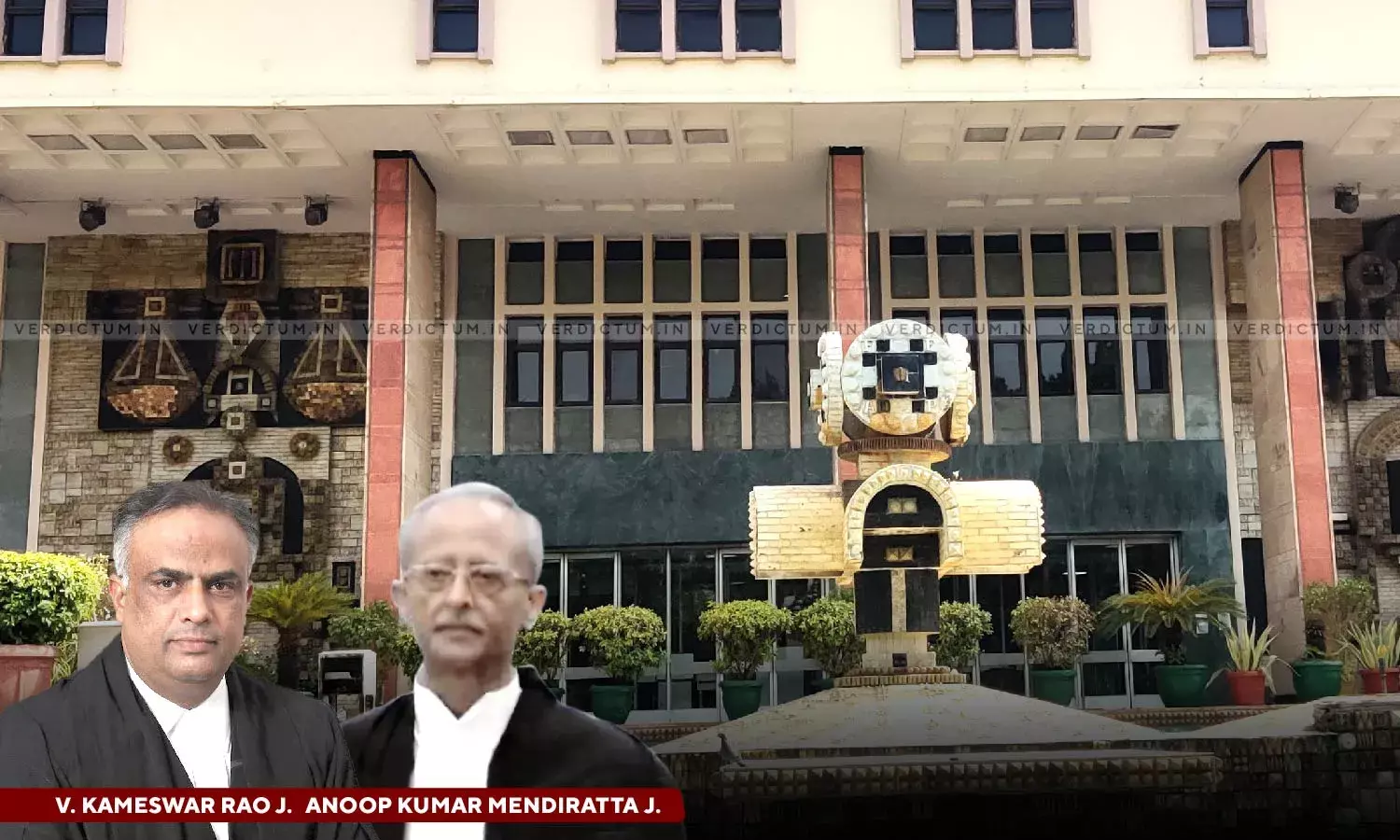Authorities Have To Be Compassionate While Considering Medical Reimbursement Claims: Delhi High Court

The Delhi High Court observed that authorities are expected to be compassionate and give a sympathetic consideration while considering the claim for medical reimbursement.
The Court reiterated that the right to health is an integral part of the right to life and observed that the caution needs to be applied when rejecting bills of geriatric patients.
The Court was deciding a writ petition filed against the order of the Central Administrative Tribunal (CAT) by which the application preferred by a man for reimbursement of medical expenditure incurred for treatment of his late mother in a non-empanelled hospital was disposed of.
A Division Bench of Justice V. Kameswar Rao and Justice Anoop Kumar Mendiratta observed: "The respondents are expected to be compassionate and give a sympathetic consideration while considering the claim for medical reimbursement, in order to mitigate the financial hardships, rather than aggravate the situation by rejecting/restricting the claims. It needs no reiteration that right to health is integral to right to life and the authorities are under an obligation to provide full reimbursement for medical facilities availed in emergency"
The Bench added that even the patients with critical symptoms at an advanced stage may have to be conservatively managed as per advice of the treating Physician.
Brief Facts -
On demise of the father of the petitioner in 1995 who worked with the Railways, his mother was receiving family pension and was also entitled to avail medical benefits being a family pensioner. In 2012, his mother was admitted in emergency in the hospital and was operated for “Left parieto occipital horse shoe shaped craniotomy and evacuation of Intracerebral Hematoma”. After his mother was discharged, a claim for reimbursement of medical expenses of Rs. 3,21,574/- was made by him. His mother again developed some complications and was admitted in emergency in ICU and on her discharge, reimbursement bill for Rs. 1,75,814/- was raised.
Unfortunately, she was again admitted and expired during the course of treatment. A bill for reimbursement of medical expenditure of Rs. 2,14,579/- was further raised by the son. In nutshell, he claimed reimbursement of Rs. 7,11,967/- incurred by him for the treatment of his mother in emergent condition. However, only an amount of Rs. 45,643/- was reimbursed by the Chief Medical Director for the first treatment and the balance amount of Rs. 2,75,931/- was rejected. Similarly, in respect of remaining two claims, the claim was rejected on the sole reason that the emergency was not justified as per Railway Board circular. Being aggrieved, he approached CAT which disposed of his plea and hence, he was before the High Court.
The High Court after hearing both sides said, “… we do not find any logical reasons for restricting the reimbursement since the same was undertaken due to emergent medical condition. … The other two bills for medical reimbursement with reference to admission subsequently on November 23, 2012 to December 02, 2012 and December 22, 2012 to December 30, 2012 were restricted on the ground that emergency has not been established.”
The Court further held that at advanced stages, it is practically not feasible, at times, in emergent situation to shift the patient at a distantly situated empanelled hospital or follow the procedure of seeking permission through AMA.
“Once it has been established on record that the treatment undertaken in the first instance for admission from October 05, 2012 to October 26, 2012 was utmost necessary in an emergency condition, the readmission of Mrs. Sujan Kaur at Paras Hospital from November 23, 2012 to December 02, 2012 and December 22, 2012 to December 30, 2012 needs to be seen in the aforesaid perspective. It also cannot be ignored that Mrs. Sujan Kaur while undertaking the treatment on December 22, 2012 finally expired on December 30, 2012 in the hospital itself”, noted the Court.
It further said that any delay can be life threatening as well as detrimental to the patient and that the insistence pleaded by the respondents for strictly following the medical procedure in such conditions is hyper technical approach.
“The condition of Late Sujan Kaur can be clearly gauzed from the nature of treatment undertaken after admission in neurosurgery department on October 05, 2012. … The respondents are expected to be compassionate and give a sympathetic consideration while considering the claim for medical reimbursement, in order to mitigate the financial hardships, rather than aggravate the situation by rejecting/restricting the claims. It needs no reiteration that right to health is integral to right to life and the authorities are under an obligation to provide full reimbursement for medical facilities availed in emergency”, observed the Court.
It concluded that unfortunately, the petitioner was made to run from pillar to post for the purpose of reimbursement of medical expenses on account of treatment of his deceased mother and was contesting the petition for over a decade.
Accordingly, the High Court allowed the petition and directed the respondents to reimburse the medical claims preferred by the petitioner along with simple interest @ 7% per annum.
Cause Title- Jasbir Singh v. Union of India & Ors. (Neutral Citation: 2024:DHC:3-DB)


